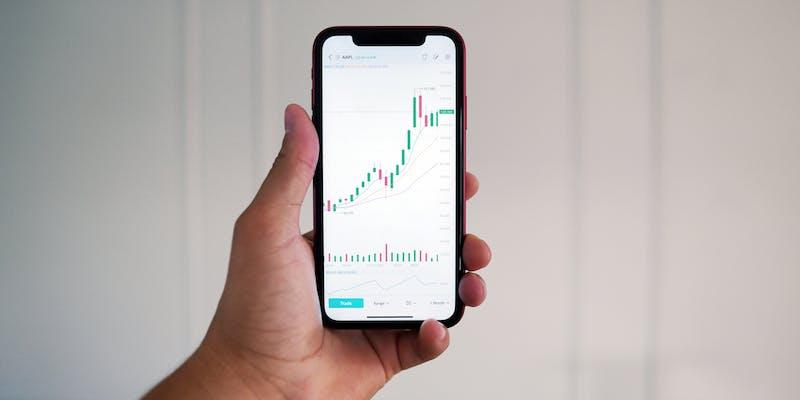The forex market stands out due to its decentralized framework. Unlike traditional markets with a specific physical location, the forex market is a comprehensive network of players. This network includes retail brokers, central banks, commercial businesses, and banks.
All these participants engage in currency trading electronically, making the forex market's operations limitless by geography or time zones. This unique aspect of the forex market location ensures that it operates beyond the constraints of a single region, adapting to different forex market hours globally. The market's decentralized setup is fundamental to its operation, providing worldwide trading opportunities.
Participants in the Forex Market
Forex market has no single location. However, it has different participants that let the market operate from all around the world. Some of these participants include:
Retail Forex Brokers
Retail forex brokers are a vital gateway for individual traders to enter the foreign exchange arena. Despite their smaller transaction volume compared to the overall market, these brokers play a crucial role in democratizing access to forex trading.
They offer user-friendly platforms that cater to the needs of individual traders, aligning with various forex market hours to ensure global accessibility. This accessibility is critical to sustaining the dynamic and diverse nature of the foreign exchange market.
Central Banks
Central banks are pivotal in the forex market. They significantly influence their nation's currency, money supply, and interest rates. Their interventions in the forex market are often aimed at stabilizing or adjusting the value of their currency.
This can include changing interest rates or directly participating in the forex market. Central banks' actions are particularly impactful during forex market hours that overlap with their country's active business hours, adding another layer of complexity to trading strategies in foreign exchange.
Commercial Businesses
Commercial businesses, particularly those engaged in international trade, actively participate in the forex market. Their need to manage currency risks and conduct cross-border transactions places them among the key players.
These businesses often engage in forex trading to hedge against potential exchange rate fluctuations, aligning their trading activities with specific forex market hours that best suit their operational needs. Their participation underscores the practical aspect of the forex market beyond mere speculation.
Banks
Banks play a dual role in the forex market. They facilitate forex transactions for their customers and actively trade currencies for their accounts. Banks' involvement in the forex market is significant, given their capacity to handle large volumes of currency trades.
They are instrumental in maintaining liquidity in the market, ensuring that transactions can be executed at any time during forex market hours. Their role is central to the functioning of the foreign exchange system, influencing market dynamics extensively.
Benefits of Forex Market

Accessibility
Virtual forex markets offer unparalleled accessibility. This allows traders from around the world to trade foreign exchange. The forex market's $6.6 trillion daily transactions demonstrate its reach and accessibility.
Individuals and institutions can trade currencies 24/7 in the forex market, following their time zones and schedules. The forex market operates 24/7, unlike other financial markets. Forex market accessibility is essential to its liquidity and dynamism.
Flexibility of Market Hours
The forex market operates 24 hours daily, spreading trading activities across different regions. The market is most active when the trading hours in major financial hubs—New York, London, Sydney, and Tokyo—overlap. This forex market location structure ensures continuous trading as different global markets open and close throughout the day.
During these forex market hours, there is a significant increase in trading volume, making these periods particularly important for traders. For instance, the New York and London markets overlap, representing one of the busiest forex market hours, marked by high liquidity and movement in foreign exchange rates. Similarly, when the Tokyo market opens, it signals the start of Asian trading, affecting forex market location dynamics.
The foreign exchange market's decentralized nature means it doesn't have a single physical location. Instead, forex trading occurs in an electronic network where banks, institutions, and individual traders interact. This global reach of the forex market location makes it unique in the financial world.
Diversity of Players
The forex market is full of diverse players with different strategies and perspectives. This diversity includes retail traders, hedge funds, multinational corporations, and central banks.
A wide range of participants deepens and liquidifies the forex market. Multiple players make it easier to execute trades because buy and sell orders match more often. This liquidity is crucial given that the forex market averages $6 trillion daily turnovers.
Diverse forex market players create a more dynamic and competitive environment, reflecting a global marketplace where economic, political, and social factors intersect.
Challenges in the Forex Market

Absence of Centralized Regulation
The need for a single governing authority presents a unique challenge in the forex market. Each country's forex market is governed by its rules, leading to varying international regulations. This scenario complicates efforts to standardize practices and maintain consistent oversight across the global forex market.
As forex market location varies, traders encounter different regulatory environments, affecting trading strategies and risk management. The decentralized nature of foreign exchange necessitates heightened awareness of these regulatory disparities, as they directly impact market operations and trader security.
Market Monitoring
The continuous operation of the forex market, spanning various forex market hours, demands constant vigilance from traders.
Significant price movements can happen anytime since the foreign exchange market does not close. This aspect requires traders to be perpetually alert, especially during major financial centers' overlapping forex market hours.
The challenge lies in monitoring and responding to rapid market changes, a task that can be taxing and requires a strategic approach. Understanding the dynamics of the forex market location and its 24/7 nature is crucial for effective trading and risk management.



